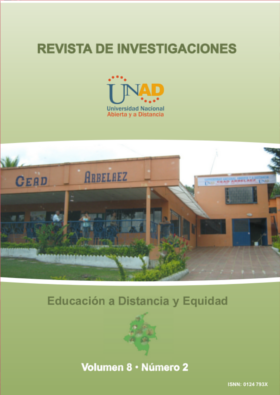Cuando la REVISTA DE INVESTIGACIONES UNAD recibe la postulación de un original por parte de su autor, ya sea a través de correo electrónico o postal, considera que puede publicarse en formatos físicos y/o electrónicos y facilitar su inclusión en bases de datos, hemerotecas y demás sistemas y procesos de indexación. REVISTA DE INVESTIGACIONES UNAD autoriza la reproducción y citación del material de la revista, siempre y cuando se indique de manera explícita el nombre de la revista, los autores, el título del artículo, volumen, número y páginas. Las ideas y conceptos expresados en los artículos son responsabilidad de los autores y en ningún caso reflejan las políticas institucionales de la UNAD
La comprensión y la inferencia en el estudio de hipertextos con el apoyo de un agente generador de preguntas
This document summarizes the results of a research project, named “Question generator software agents and the cognitive skill of making inferences: comprehension and inference at different levels, in hypermedia environments”, developed by the TECNICE Group at the Universidad Pedagogica Nacional in Bogotá, Colombia.
We analyze the effect of using a question generator agent, during the study stage, on cognitive skill development of making inferences at three levels, by middle school students.
An artificial software agent plays the role of making questions and its effect on the natural agent reasoning process is assessed. Question production helps the natural agent to identify what to learn (Ram, 1991). Following this approach, the software agent is able of generating questions on the geography knowledge domain based on three levels of the ontology used in the representation.
The effect on the cognitive skill development of making inferences of students which studied a hypertext based on an ontological structure is compared with that of students which studied the same hypertext using a question generator agent in three arrangements: first , second an third level of questions, and user controlled system.
This study shows a strong effect of the ontology used in the knowledge representation and the adaptive model, in the development of inference skill, compared with the questions controlled by the computer. Contrary to our expectations, students which tried high level questions did not achieve better than those who tried lower level questions and the data support the hypothesis of a specific effect of each question level on the inference learning.




